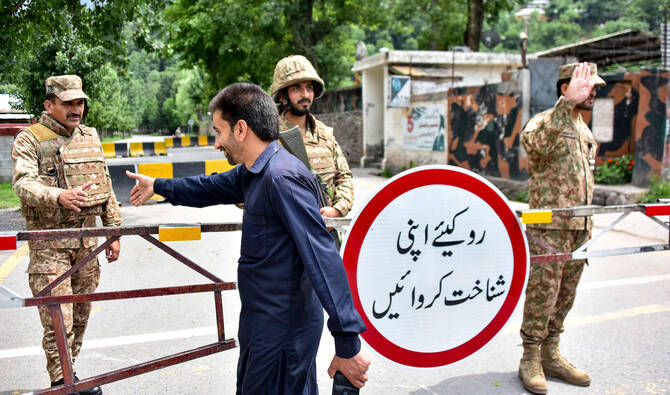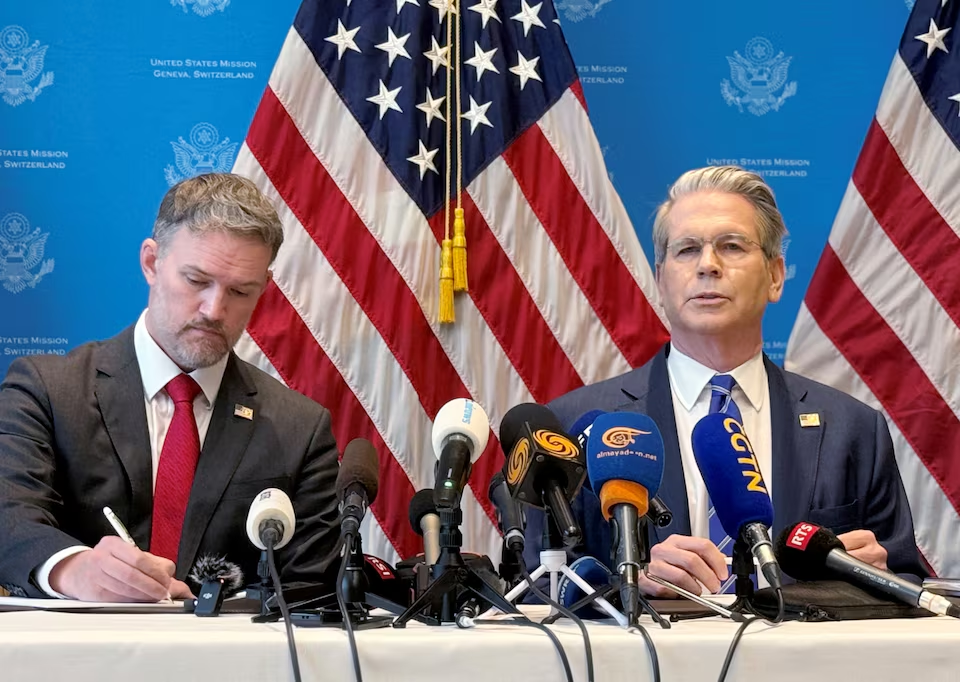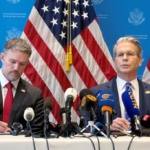Now Reading: Pakistan Confirms 51 Fatalities in Escalating Border Clash with India: Army, Air Force, and Civilians Among Dead
-
01
Pakistan Confirms 51 Fatalities in Escalating Border Clash with India: Army, Air Force, and Civilians Among Dead
Pakistan Confirms 51 Fatalities in Escalating Border Clash with India: Army, Air Force, and Civilians Among Dead

Pakistan Confirms 51 Fatalities in Escalating Border Clash with India
Pakistan has confirmed a total of 51 fatalities in an ongoing and escalating border clash with India along the Line of Control (LoC). The casualties include 6 members of the Pakistan Army, 5 personnel from the Pakistan Air Force (PAF), and 40 civilians. The Ministry of Defense issued a formal statement earlier today, labeling the strikes as “unprovoked aggression by Indian forces.”
Background of the Conflict
The recent clashes mark a significant deterioration in already tense relations between India and Pakistan. The incident began early Sunday morning, when Indian forces reportedly launched targeted artillery and drone strikes across various sectors of the LoC, including Neelum Valley, Bhimber, and Kotli.
Pakistan responded swiftly, engaging Indian positions with retaliatory fire, leading to a fierce and prolonged exchange. Multiple eyewitness reports from Azad Jammu and Kashmir confirmed the shelling caused widespread panic and devastation.
High Civilian Toll
According to official figures, 40 civilians were killed in the cross-border artillery barrages. Many of the victims were residents of small villages near the LoC, such as Charhoi, Battal, and Tatta Pani. The Pakistani Red Crescent has dispatched emergency relief teams, while local hospitals are struggling to cope with the influx of injured civilians.
Health officials say over 80 people have been injured—some critically—and medical supplies are running low in border districts. Makeshift field hospitals have been established, but there are appeals for blood donations and urgent medical aid.
Military Losses: Army and Air Force
The Pakistani military confirmed the loss of 11 personnel in the confrontation. Six soldiers of the Pakistan Army were killed during active combat, while five members of the Air Force perished when their surveillance drone was intercepted and shot down near Bhimber.
These are among the most severe military losses Pakistan has experienced in a single day in recent years. The ISPR (Inter-Services Public Relations) condemned the attack as a violation of international law and the 2003 ceasefire agreement.
Political Fallout
Prime Minister Shehbaz Sharif addressed the nation in a televised speech, denouncing the aggression and calling for international action.
“India’s deliberate targeting of civilian populations is not only a war crime but a threat to peace in South Asia,” Sharif said.
The Prime Minister has summoned an emergency meeting of the National Security Council and instructed the Foreign Office to take up the matter at the United Nations.
International Response
The international community has expressed concern over the growing hostilities. The United Nations has called on both sides to show restraint and return to dialogue. A spokesperson for the UN Secretary-General issued a statement:
“The Secretary-General urges both India and Pakistan to de-escalate tensions, avoid actions that could further inflame the situation, and engage in constructive talks.”
The U.S. State Department and the European Union echoed similar sentiments, urging restraint and offering to mediate.
🎥 Embedded Video Report:
Indian Perspective
The Indian Ministry of Defence has not issued a formal response as of now. However, Indian media has quoted unnamed officials claiming the action was in response to “cross-border infiltration and militant activity originating from Pakistani soil.”
Indian analysts argue that the strike was “preemptive,” though this claim has not been independently verified.
Growing Military Presence
There are reports of large-scale troop mobilization by both countries. Pakistani military units have been observed moving toward the eastern border, and air bases in Punjab and Kashmir have been put on high alert. Similarly, Indian Army convoys have been spotted near the border towns of Jammu and Rajouri.
Satellite images show increased military buildup, raising fears of a broader escalation if diplomatic channels remain closed.
Impact on Civilians
The lives of thousands living near the LoC have been upended. Schools have been shut, markets closed, and residents are fleeing to safer areas. Humanitarian agencies warn of a growing crisis as basic necessities become scarce and psychological trauma deepens among children and the elderly.
A local schoolteacher from Bhimber said:
“We don’t know when this will end. The constant shelling, the fear… it’s unbearable. We just want peace.”
Diplomatic Channels Silent
Efforts to establish back-channel diplomacy appear to have stalled. No official talks are currently scheduled between Islamabad and New Delhi. Analysts warn that without diplomatic intervention, both countries risk sliding into a broader military confrontation.
Regional Repercussions
The clash is already affecting regional stability. Afghanistan, China, and Iran have all issued cautious statements calling for restraint. China has urged both sides to resolve the issue through dialogue, given the potential impact on trade corridors and regional security.
Social Media Reactions
Both Pakistani and Indian social media are flooded with nationalist rhetoric, videos of airstrikes, and graphic images. Hashtags like #LoCUnderFire and #IndiaPakistanClash are trending on platforms like Twitter and Instagram. Misinformation is rampant, prompting fact-checkers to step in.
Conclusion
The tragic loss of 51 lives—military and civilian alike—is a stark reminder of the volatility along the India-Pakistan border. Unless both nations step back and engage in meaningful diplomacy, the situation risks spiraling into a wider, potentially uncontrollable conflict.
As the world watches, voices for peace must be louder than the drums of war.





















